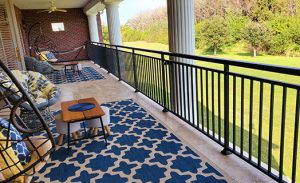To Call
Seeking Out A Residential School For Your Troubled Girl? Our Central Florida Residential Treatment Center For Girls Has Much To Offer.
If your daughter is struggling, you will want to find the best
treatment to help her. Providence Pass near Orlando helps
girls from across Florida.
- Beautiful Home & 20-Acre Ranch
- Individual, Family & Group Therapy
- Fun Recreational Activities
- Academics & Skill Building
- Equine Assisted Therapy

Pros and Cons of Boarding School
Boarding Schools : What You Need to Know?
Boarding schools have been part of the educational scene for a long time. In the United States, about 35,000 students attend these schools each year, according to the Association of Boarding Schools. In addition to education, these institutes provide a living environment that can deeply affect a young person’s growth.
For teen girls facing challenges, boarding schools can offer a structured environment that supports emotional healing and academic growth. The consistent routines and close-knit communities can give them the stability they need. However, it is important to look at the pros and cons of boarding school because it is not the ideal choice for everyone.
The Benefits of Boarding School for Teen Girls
1. Structure and Discipline
Boarding schools provide a daily routine that can be helpful for girls needing stability. Schedules include classes, extracurricular activities, and personal time. This structured environment helps students focus on their studies and personal development without the distractions they might find elsewhere. Living with clear rules and expectations encourages good habits and time management skills.
2. Independence and Self-Reliance
Living away from home teaches teen girls to be more independent. They learn to manage their own routines, from waking up on time to organizing their study time. Without parents around all the time, they develop a sense of responsibility for themselves. This independence fosters personal growth and gets them ready for future challenges like college or a career.
3. Access to Specialized Therapy
Some boarding schools offer specialized therapies that can be especially helpful for troubled teens. Programs like animal assisted therapy and ART therapy for teens provide unique ways to address emotional and behavioral issues. Many therapeutic schools in Texas and Florida, for example, might include these therapies in their programs. These options can help girls work through their feelings and learn healthier ways to cope.
4. Academic Excellence
Boarding schools often have strong academic programs designed to prepare students for future success. With smaller class sizes and dedicated teachers, students get attention that can enhance their learning experience. This helps them excel in their studies while also working on personal challenges. The focus on leadership skills and mentorship programs equips them with tools they will need later in life.
5. Sense of Community
Being part of a boarding school can create a strong sense of community. Living and learning alongside peers fosters close friendships and a supportive network. This environment can help girls develop social skills and feel connected, which is important for their well-being.
Accepting 3 Applications Immediately
Challenges of Boarding School for Teen Girls
1. Homesickness and Emotional Strain
Being away from home can be tough. Many teen girls feel homesick when they are separated from family and familiar surroundings. This can lead to feelings of isolation and make it harder to adjust to the new environment. In some cases, these emotions can cause them to withdraw or feel numb.
2. Cost and Affordability
Boarding schools can be expensive, and the cost might be a significant hurdle for many families. Tuition often includes not just education but also housing, meals, and other expenses. Considering the cost of boarding schools is important when deciding if this option is right for your child.
3. Adjustment Challenges
Adapting to the strict routines and social environment of a boarding school is not always easy. Some teens might struggle with the expectations or find it hard to fit in with their peers. The structured environment that benefits some students might feel restrictive to others, leading them to act out or withdraw emotionally.
4. Limited Family Time
Being away from home means less time with family. Important events like family celebrations or everyday moments are missed. This limited family time can affect the relationship between parents and their children and might contribute to feelings of loneliness.
5. Pressure to Succeed
Some boarding schools have high academic standards and expectations. This pressure can be overwhelming for some students. The focus on academic rigor might lead to stress or anxiety, making it hard for them to enjoy their school life.

How Providence Pass Brings Together Care and Education
1. Holistic Approach to Healing
Providence Pass combines therapeutic support with a full academic program. We address both emotional and educational needs and help teen girls work through their challenges without falling behind in school. This balanced approach makes sure that students receive support in all areas of their lives.
2. Individual Attention and Support
Each girl at Providence Pass gets support that fits her unique needs. The staff works closely with students to develop plans that focus on their emotional and academic goals. This approach helps girls feel understood and supported.
3. A Safe and Nurturing Community
Providing a safe space is essential for troubled teens to heal and grow. Providence Pass creates an environment where girls can express themselves without fear of judgment. The supportive community encourages positive relationships and fosters a sense of belonging, which can make a big difference in their recovery process.
Academic Success and Looking Ahead
Providence Pass focus is not just on emotional healing. We also make sure that girls succeed academically. With a curriculum designed to meet each student’s needs, we help girls stay on track with their studies. Small class sizes and dedicated teachers provide the support students need to achieve their goals.
By combining therapy with strong academics, Providence Pass prepares students for the future. We help teen girls build a solid foundation for a brighter future, both personally and academically. Our residential treatment for teen girls offers a comprehensive approach that addresses various aspects of a young person’s development.
Accepting 3 Applications Immediately

Who We Are
Upward Bound provides a compassionate environment that nurtures the cognitive, emotional, and social development of struggling adolescents within a therapeutically supportive and educational community. Our facility includes private therapy offices for individual or family counseling, an intimate but modern group therapy room, indoor/outdoor interaction spaces, state-of-the-art technology, and educational tools to give at-risk girls the opportunity to heal and grow from past traumas.












